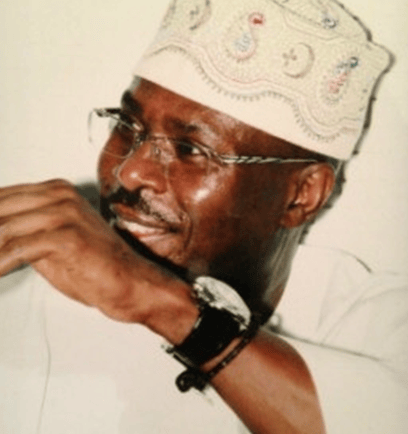THE EMPIRE ARCHITECT
The Fire Behind the Fortune
BIOGRAPHY
Fabian Agore
10/31/20253 min read


The violins were drowned by the sound of money. Laughter, champagne corks, and the low thrum of whispered deals filled the ballroom of the Eko Hotel that night. The city’s elite were out in full armor — oil men, ministers, heiresses — each one orbiting the quiet figure at the center of it all.
Tunde Folawiyo.
He stood slightly apart from the noise, the kind of man who didn’t have to raise his voice to command a room. A silk pocket square, a simple wristwatch, and the same calm eyes that once measured the weight of oceans. In his hand, not a drink, but a cup of tea — steaming, steady — a small act of control in a world that worshiped excess.
Someone nearby was talking about a deal in Angola, another about art in Paris. Tunde listened, nodded once, smiled faintly. He’d already done business with both men — quietly, profitably. Tonight wasn’t about money. It was about presence.
And presence was something he owned.
He had been born into privilege, yes — the son of Chief Wahab Iyanda Folawiyo, the shipping magnate who turned the Yinka Folawiyo Group into a continental powerhouse. But Tunde had never been content to be his father’s shadow. From the beginning, he’d wanted to build something that was his.
England had refined the ambition. The London School of Economics, then University College London, where he earned both an LLB and LLM — credentials that opened doors most people never saw. He’d been called to the Bar in England and Nigeria, but within a year, the courtroom walls felt too narrow. The world outside — raw, volatile, thrilling — was calling.
By 1989, he’d seized control of the family business, expanded it beyond shipping into energy, finance, agriculture, and real estate, and founded Folawiyo Energy Ltd. It was a gamble that paid off like a prophecy. Fifteen years later, his Apapa terminal became one of Nigeria’s largest, handling nearly 30% of the nation’s fuel throughput.
And then came oil — Yinka Folawiyo Petroleum’s strike in the Aje Field — a milestone for a privately held Nigerian company. That moment changed everything. The empire was no longer a family inheritance. It was his.
Yet behind every empire, there’s an elegance — and for Tunde, it was Reni, his wife. A woman who turned her own ambition into Alára, the luxury fashion house that put African design on the global stage. They were equals in brilliance — the industrialist and the aesthete — each shaping the continent in their own way.
Their daughter, Faridah, speaks with her mother’s clarity, her father’s composure — a rising voice in African art and culture. Their son, Fuaad, mirrors Tunde’s quiet focus — the same watchful stillness that precedes movement.
And still, Tunde finds his peace in solitude — in the hum of Lagos at dusk, in the rhythm of African art, in the steam of a late-night cup of tea. He once bought King Sunny Adé’s guitar for millions — not as a trophy, but as a memory of sound and struggle.
Later that night, long after the party faded and the city lights dimmed, he stood again on his terrace, overlooking the dark sweep of the lagoon. The air was thick with the smell of rain and the promise of tomorrow.
He lifted the cup to his lips, eyes fixed on the horizon. The world thought his story had peaked.
But men like Tunde Folawiyo don’t peak. They rise — quietly, completely, again and again.
And Lagos — restless, electric Lagos — knows it.
Because every time the night falls, the city listens for the sound of his next move.
Visit this page daily for your dose of financial sense to power up your wealth growth. Also, share with your family, friends and colleague





